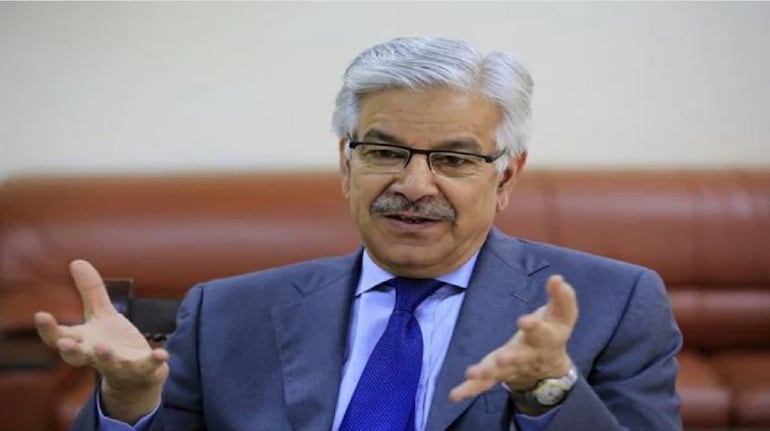



Days after signing a landmark mutual defence pact with Saudi Arabia, Pakistan defence minister Khawaja Asif on Thursday said that the "doors are not closed" for other nations to join the arrangement.
Earlier this week, Pakistan and Saudi Arabia inked a mutual defence agreement which stated that "any aggression against either country shall be considered an aggression against both". The pact, part of a broader effort to establish an anti-Israel "Islamic NATO”, was signed by Pakistan Prime Minister Shehbaz Sharif and Saudi Crown Prince Mohammad Bin Salman in Riyadh.
In an interview to Geo News, Asif indicated that there is always room for more Muslim nations to join the agreement. “I think it is a fundamental right of the countries and people here, particularly the Muslim population, to together defend their region, countries and nations,” he said.
He added that Pakistan has consistently supported the idea of a Nato-like alliance for Arab nations, citing a “greater vulnerability for Pakistan” given the region’s history over the past 40 to 50 years. Though he did not elaborate further, Asif was clearly referring to Pakistan's historic rivarly with India, with both nations fighting four wars since Independence, mainly over Kashmir. Islamabad also sees India as an "existential threat".
The Pakistan minister clarified that there is no clause in the agreement that restricts the entry of any other nation. He suggested that Pakistan can even sign similar agreements with others.
Asked whether Pakistan’s nuclear assets were also covered under the agreement, Asif said: “What we have, our capabilities, will absolutely be available under this pact. But let me say, since Pakistan has become a nuclear state, never has anyone challenged our status of being a responsible nuclear power.”
He claimed that Pakistan had always offered its nuclear facilities for inspection and had never committed any violation.
When questioned about whether an attack on one country would automatically draw in the other, the minister said: “Yes, absolutely. There is no doubt in this.”
He clarified that neither Pakistan nor Saudi Arabia had tied the implementation of the defence deal to any specific country. “It is an umbrella that has been provided by both sides, that, if there is aggression against any side from any side, it will be jointly defended against and responded to.”
Pakistan's army chief, Field Marshal Asim Munir, has been promoting the idea of a pan-Islamic military alliance, or an "Islamic NATO" — a bloc led by Pakistan that would unite Muslim-majority nations for collective defence.
Munir has projected himself as the champion of the global Muslim community (Ummah), leveraging Pakistan's status as the only Islamic country with nuclear weapons to rally support and present his country as the natural leader of such a coalition.
The agreement also comes just months after India and Pakistan pulled back from the brink after an intense four-day military conflict following the Operation Sindoor strikes. Notably, Saudi Arabia did not issue any direct statement against India’s Operation Sindoor, which was carried out to avenge the deadly Pahalgam attack of April 22.
Discover the latest Business News, Sensex, and Nifty updates. Obtain Personal Finance insights, tax queries, and expert opinions on Moneycontrol or download the Moneycontrol App to stay updated!
Find the best of Al News in one place, specially curated for you every weekend.
Stay on top of the latest tech trends and biggest startup news.